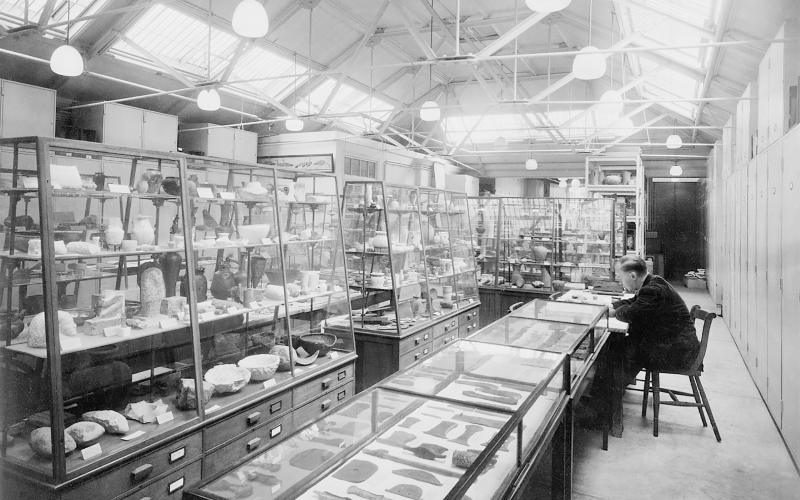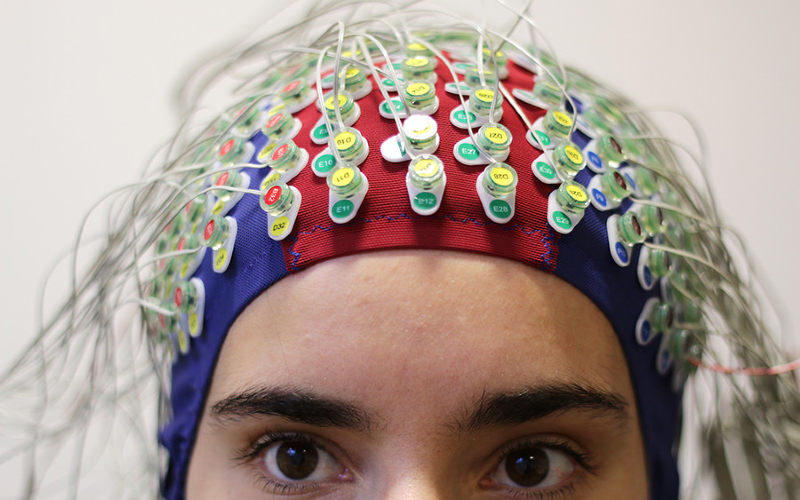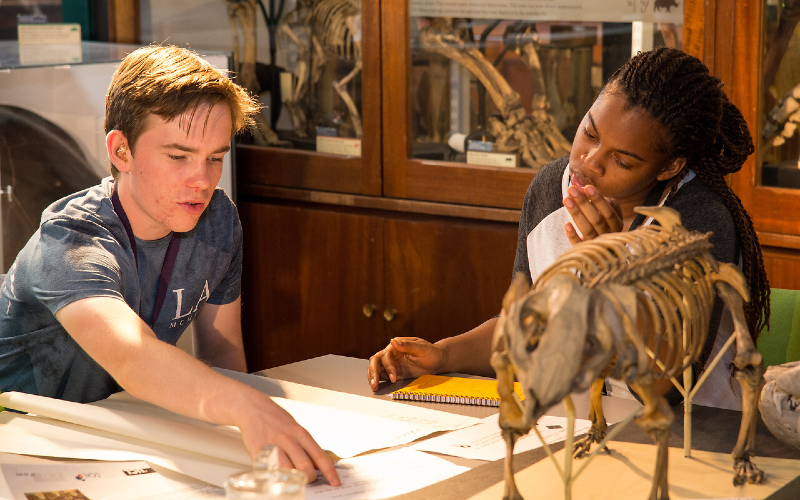A history of disruptive thinking
We have a proud heritage of disruptive thinking, a reputation for game-changing research and a unique multidisciplinary approach to problem solving.
UCL has confronted humanity’s biggest issues since 1826
At that time, attending university was a rare privilege.
If you weren’t a man from a wealthy background and a member of the established church, higher education was off limits.
Our founders tore up that rule book.



We were the first university in England to welcome students of any religion or social background. We were also the first in England to welcome women to university education.
We have challenged inequality ever since, and we hold a Silver Athena SWAN award in recognition of our progressive work practice.
Each year, we invest £13.5 million in bursaries and activities to support students from diverse backgrounds to enter and succeed.
We were also the first university in England to teach subjects such as engineering, architecture and languages.
A pioneering heritage
Our pioneering heritage makes us proud, but it’s the future that really excites us. Since our founding we have continually innovated our teaching methods.
Our Connected Curriculum makes research the cornerstone of our students’ activity. Our Arts and Sciences BASc leads the way in interdisciplinary study.
Learn how to think - not what to think
We are here to further your knowledge, develop your skills of analysis and problem-solving and give you a truly global outlook that draws on diverse cultural perspectives.
Studying in London, you’ll be living, learning and growing your network in one of the world’s greatest cities.
Through our Connected Curriculum you’ll have the chance to work alongside some of the world’s leading researchers. They will drive you to think more analytically and independently – providing opportunities to undertake research activities of your own and create original output.
We are here to further your knowledge, develop your skills of analysis and problem-solving and give you a truly global outlook that draws on diverse cultural perspectives. Learn how to think – not what to think.
We are constantly evolving to meet the needs of our students. Throughout your time here, you’ll have many opportunities to shape our curriculum and how it’s delivered.

Our Nobel laureates
UCL staff and alumni have won at least one Nobel Prize each decade since the award began in 1901, with more than half of our 30 Nobel laureates born outside the UK.
1904 - Chemistry | Sir William Ramsay
Discovered the noble gases: helium, argon, neon, krypton and xenon.
1913 - Literature | Rabindranath Tagore
Wrote profoundly sensitive, fresh and beautiful verse.
1915 – Physics | Sir William Henry Bragg
Analysed the structure of crystals using X-rays.
1921 – Chemistry | Frederick Soddy
Invented the concept of isotopes.
1922 – Physiology or Medicine | Archibald Vivian Hill
Founded biophysics.
1928 – Physics | Owen Willans Richardson
Discovered the law of thermionic emission.
1929 – Physiology or Medicine | Sir Frederick Gowland Hopkins
Discovered growth-stimulating vitamins.
1936 – Physiology or Medicine | Sir Henry Hallett Dale and Otto Loewi
Discovered neurotransmitters.
1938 – Physiology or Medicine | Corneille Jean Francois Heymans
Revealed how respiration is regulated.
1944 – Chemistry | Otto Hahn
Made discoveries leading to the development of nuclear technology.
1947 – Chemistry | Robert Robinson
Discovered the structure of morphine and strychnine.
1955 – Chemistry | Vincent du Vigneaud
Carried out the first synthesis of a polypeptide hormone, oxytocin.
1959 – Chemistry | Jaroslav Heyrovsky
Discovered polarography, widely used in clinical and environmental analysis.
1960 – Physiology or Medicine | Peter Brian Medawar
Discovered the key to successful organ and tissue transplantation.
1962 – Physiology or Medicine | Francis Harry Compton Crick
Discovered the molecular structure of nucleic acids (DNA).
1963 – Physiology or Medicine | Andrew Fielding Huxley
Revealed how activity is co-ordinated by a central nervous system.
1967 – Chemistry | George Porter (Baron Porter of Luddenham)
Devised flash photolysis to observe free radicals.
1970 – Physiology or Medicine | Sir Bernard Katz
Advanced remedies against nervous and mental disturbances.
1988 – Physiology or Medicine | Sir James Black
Discovered the first beta-blocker, propranolol.
1991 – Physiology or Medicine | Bert Sakmann
Discovered the role of ion channels in diseases, revolutionising cell biology
2000 – Economics | James Heckman
Discovered the role of ion channels in diseases, revolutionising cell biology.
2001 – Physiology or Medicine | Sir Paul Nurse
Enabled new avenues of research in tumour diagnostics and therapy.
2007 – Physiology or Medicine | Sir Martin Evans
Introduced gene modifications in mice.
2009 – Physics | Charles Kao
Developed the transmission of light for optical communication.
2013 – Physics | Peter Higgs
Predicted the particle: the Higgs boson.
2013 – Physiology or Medicine | James Rothman
Revealed how substances are trafficked by vesicles in our cells.
2014 – Physiology or Medicine | John O’Keefe
Discovered the ‘inner GPS’ in the brain.
2020 – Physics | Sir Roger Penrose
Proved that the general theory of relativity predicts the formation of black holes.
